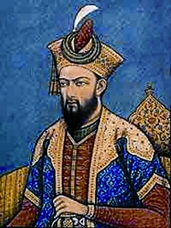Introduction: A Dangerous Twist to Religious Sentiments
In a shocking turn of events, a Kanwariya mob reportedly assaulted an Indian Army jawan, triggering widespread outrage on social media. The incident, which should have united the public in condemnation of violence, has instead snowballed into a communal propaganda war, with many pitching Kanwar vs Muharram—a divisive narrative gaining traction. UP Chief Minister Yogi Adityanath’s reaction calling the accused “peace-loving” individuals has further added fuel to the fire.
What Really Happened? The Assault of a Soldier by Kanwariyas
The unfortunate episode occurred during the annual Kanwar Yatra, where devotees of Lord Shiva undertake long journeys on foot, often chanting and dancing in large groups. However, things turned violent when a jawan travelling on duty was stopped and beaten up by some Kanwariyas allegedly for not giving way. Videos of the incident quickly went viral, showing the brutality and disregard for law.
What’s even more shocking is that no swift condemnation came from the authorities initially. In a state where law and order is often quoted as a top priority, an assault on a serviceman should have raised alarms, but instead it appears to have been brushed aside.
Adityanath’s Statement: ‘Peace-Loving Devotees’?
In response to the uproar, CM Yogi Adityanath issued a statement describing the Kanwariyas as “peace-loving and devotional citizens”, sparking intense backlash online. Critics accused him of downplaying the assault, arguing that religious sentiment should never override justice—especially when violence is involved.
The question that many are now asking: If a Muslim group had been involved in such an act, would the state’s response be equally restrained?
Kanwar vs Muharram: A Manufactured Propaganda Battle
The incident has also led to an unsettling trend online: the Kanwar vs Muharram propaganda. Right-wing pages and influencers have begun drawing parallels between the peaceful processions of Muharram and the loud, often disruptive Kanwar Yatra. Videos of minor altercations during Muharram are being reshared, framed to paint one community as inherently violent while dismissing incidents like the soldier’s assault as “minor misunderstandings.”
This dangerous narrative not only divides communities but also masks the real issue—the need for discipline, accountability and equal law enforcement, regardless of religion.
Public Reactions: Social Media Erupts in Outrage
Social media users from all walks of life have condemned the incident. Many expressed anger at how armed forces personnel, often glorified in political rhetoric, are being mistreated by mobs with religious backing. One user wrote, “If even a soldier isn’t safe from mob attacks, what hope does the common man have?”
Several others questioned why Moharram processions are subjected to strict rules and heavy police presence, while Kanwar Yatras are allowed to block roads, damage public property, and now, allegedly assault people—without consequence.
Law Must Remain Above Religion
What’s concerning is the double standard in how such incidents are handled. Law enforcement appears hesitant to act against certain groups for fear of political backlash. If we are to truly uphold democracy and secularism, the state must treat all groups equally, and violence must never be justified in the name of faith.
The Kanwariya assault on a soldier is not just about one man being beaten. It's about the erosion of civil order, the politicisation of religion, and the slow decline of accountability. Regardless of the yatra or the festival, the law must be the same for all.
Conclusion: India Needs Peace, Not Propaganda
The Kanwar vs Muharram narrative is a manufactured distraction. It pits community against community while ignoring the core issue—mob justice and misuse of religious freedom. Politicians, instead of offering appeasement, must ensure that no group is above the law.
A soldier bled while serving the country, and his attackers chanted religious slogans. That irony alone should shake our conscience.
Let’s not allow propaganda to blind us. Let’s demand accountability. Let’s stand for justice—not just for the soldier, but for the soul of India.



No comments:
Post a Comment